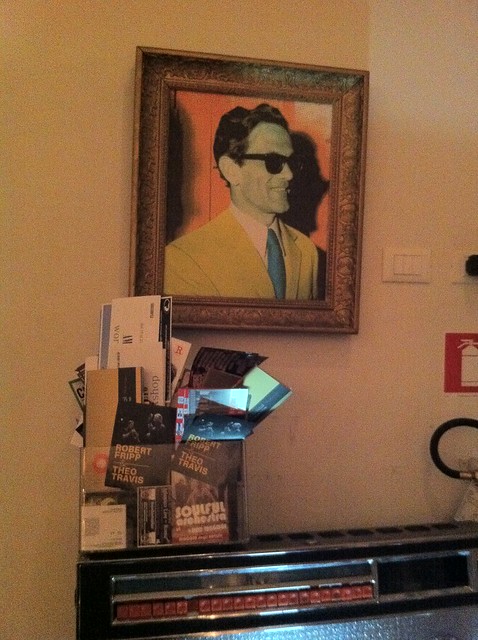
/ Anthony Franciosa and Anna Magnani in Wild is the Wind /
Recently seen: Wild is the Wind (1957). Tagline: “A storm raged within them … his wife and the boy he called his son!” I’m using this period of enforced social isolation to explore the weirder corners of YouTube for long forgotten and obscure movies. (My boyfriend is accompanying me only semi-willingly).
/ Anna Magnani and Anthony Quinn in Wild is the Wind /
I’ve never heard anyone say a good word about Wild is the Wind. The film dates from the mid-fifties period when volcanic Italian screen diva Anna Magnani (7 March 1908 - 26 September 1973) had achieved such international acclaim that Hollywood imported her for a series of English-language American movies (the most successful was the Tennessee Williams adaptation The Rose Tattoo (1955), for which she won the Best Actress Oscar). Wild is the Wind – Magnani’s second Hollywood effort - feels weirdly forgotten and unloved today, which is a shame as it’s an absorbing, deeply enjoyable family melodrama notable for exceptional acting (Magnani and Anthony Quinn were both nominated for Academy Awards for their performances). It also represents an interesting departure for George Cukor, usually celebrated as a cosmopolitan “woman’s director”: this is a rough-hewn, hard-scrabble naturalistic rural realm of farmers and horses (we see a lamb being born with documentary realism), and with an equal emphasis on male and female heartbreak.
Anthony Quinn is Gino, a widowed middle-aged Italian American sheep rancher in rural Nevada. He goes to Italy to bring back a new wife from “the old country”: Gioia (Anna Magnani), who happens to be the sister of his late wife Rosanna. The newlyweds are almost instantly embroiled in tension: brusque Gino is simultaneously controlling and neglectful towards Gioia, and still fixated on the memory of Rosanna. Suffering from culture shock and initially unable to speak English, Gioia feels stifled living on the isolated ranch. To considerably further complicate things, a powerful attraction ignites between Gioia and sensitive Bene (Anthony Franciosa), the strapping young farmhand Gino has raised like a son.
/ The torment of Magnani: Gioia grows to resent constantly being compared to her late sister Rosanna /
Quinn exudes brutish machismo and wounded sensitivity as Gino (although he admittedly lays on the cliched Italian mannerisms a little thick). Wild is the Wind is an ideal star vehicle for she-wolf Magnani (who – coincidentally – died on this day 47 years ago) and Cukor showcases her beautifully. With her disheveled mane of hair and soulful “I-haven’t-slept-in-a-week” eye bags, she looks gloriously ravaged. Watch Magnani seethe with inner torment! She’s a rampaging torrent of raw Mediterranean emotion! Although Magnani has some poignant quiet moments too – and even gets to huskily warble a traditional Italian ballad in a party scene. Magnani is, of course, a fiercely sensual presence, but the film’s primary sex object is gorgeous Anthony Franciosca. His ass looks majestic in tight jeans, and Cukor’s appreciative camera ensures you notice it. The alluring Italian American actor was married to Shelley Winters at the time, but off-screen he and Magnani enjoyed a torrid fling during the production of Wild is the Wind. In addition to Magnani, during his marriage to Winters the serially unfaithful Franciosca had affairs with Ava Gardner and Lauren Bacall. While I don’t condone adultery, I can’t say I blame them!
Postscript: Magnani and Quinn were due to
reunite for the 1959 film Black Orchid. Due to Magnani’s unavailability, the
female lead went to another Italian actress – Sophia Loren. Then at her
luscious sex goddess pinnacle, Loren’s innate glamour had to be downplayed with
a frumpy all-black wardrobe of shapeless shawls, cardigans and sensible flat
shoes to portray a downtrodden working-class widow. While Loren is genuinely good in Black Orchid,
it would have been undeniably fascinating to see Magnani tackle the part.
Eventually Magnani and Quinn would be partnered onscreen again in The Secret of
Santa Vittoria (1969).
Watch Wild is the Wind here:
Further reading:
My analysis of what I would argue is Anna Magnani's definitive role - Mamma Roma (1962).




















































